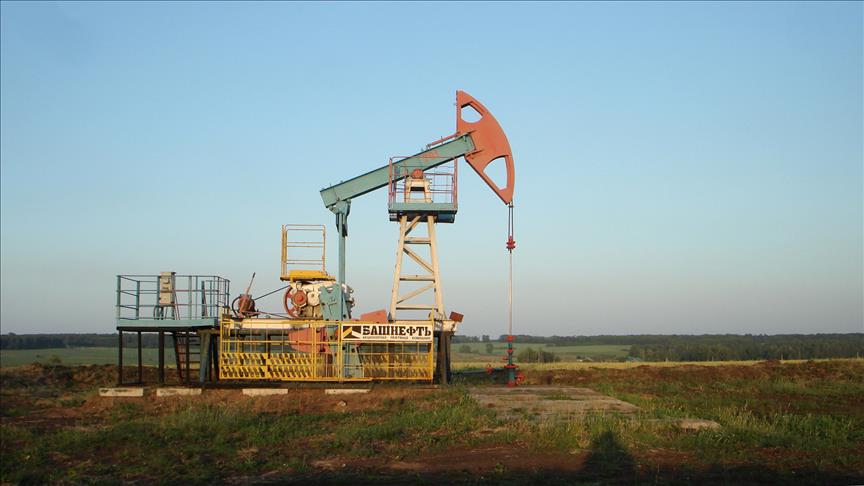
By Emre Gurkan Abay and Ovunc Kutlu
ANKARA
Western sanctions on Russia are not expected to affect the country's oil prices, production or exports in the short-term; industry observers are now warning that Moscow can maintain exports even in the medium-term.
The U.S. and European Union have recently imposed new sanctions on Russia over its purported involvement in fuelling Ukraine’s instability. The new measures will target Russian banks, its arms industry and oil companies, as well prohibiting Western companies from selling high-tech drilling equipment to Russia.
Sanctions on the oil sector will prevent Russia from importing energy technology, equipment and services from the West, which may significantly hinder Arctic, deepwater and shale explorations by Russian oil companies like Gazprom Neft, Rosneft and Transneft.
"In terms of the oil industry, sanctions are more likely to take effect over the medium term rather than the short term," says Liza Ermolenko, an energy markets economist at Capital Economics, a London-based independent research company.
"It will take a couple of years before the effects of the sanctions can be felt," she said.
Ilya Zaslavskiy, a Robert Bosch fellow with the Russia and Eurasia Programme at the London-based think-tank Chatham House said: "Even if we see some impact of the sanctions, it’s not immediate; it will be by the end of next year at the earliest."
"It depends how rapidly the Russian oil production declines and how long the sanctions will be in place," he added.
Russia was the world's third-largest producer of oil in 2013 and the second-largest producer of natural gas in 2012. Although domestic energy consumption mostly depends on gas, the Russian economy largely depends on energy exports, according to the U.S.’ Energy Information Administration.
"Even if Russia faces falling production, there are many ways it can sustain exports at a given level," says Zaslavskiy, adding that: "Russia can substitute some local oil consumption to sustain oil exports by concentrating on suppressing their own demand."
According to Ermolenko, Russian oil companies are trying to concentrate more on refining oil products, in order to increase the added value of oil that is produced in Russia.
One important implication of the sanctions will be on Russian oil firms who will struggle to raise finance externally and, when their debt matures, they will have fewer funds for new investments.
Russia's three biggest oil companies – Gazprom Neft, Rosneft and Transneft – had been banned from receiving loans from EU banks with a maturity period more than 30 days.
These companies are banned from "purchasing, selling and providing investment services for or assistance in the issuance of, or otherwise dealing with transferable securities and money-market instruments with a maturity exceeding the following 30 days," the EU announced last week.
Gardner Walkup, an energy expert at Berkeley Research Group, a global economic consulting firm, tells Anadolu Agency: "The sanctions only impact technology and services, pertaining to deep water, Arctic, and shale development.
“All three of them in Russia are long-term supply issues. The sanctions are going to have an effect on the supply situation in the long-term," he adds.
ExxonMobil, one of the biggest energy companies in the world, started drilling an exploration oil well in the Arctic in August in cooperation with Rosneft. While ExxonMobil supplies Rosneft with technology, equipment and services, the effects of the sanctions on this joint venture remain unknown.
"Russia really needs new technologies for exploring oil in the Arctic and shale gas in Siberia. Apart from Europe and the U.S., it is really hard to get it from elsewhere. Currently, Russia gets most of its oil using old, outdated technology they used during the Soviet times," says Ermolenko.
"At the moment, the expectations are that sanctions won’t stay for a long time. They will stay for a few months, but they will be lifted at some point," Ermolenko adds.
Anadolu Agency website contains only a portion of the news stories offered to subscribers in the AA News Broadcasting System (HAS), and in summarized form. Please contact us for subscription options.







